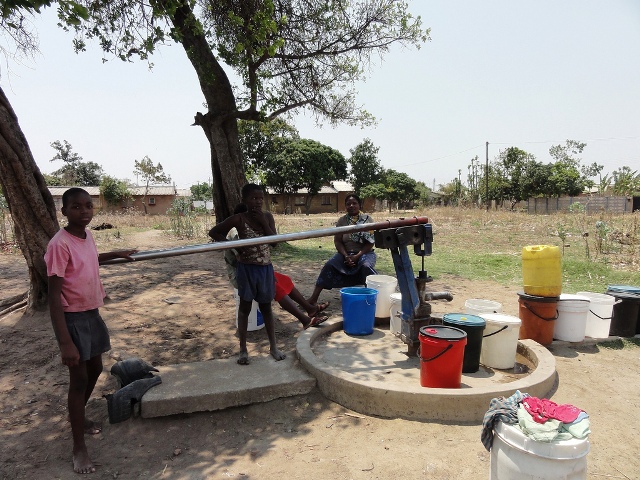AfDB approves grants to improve livelihoods and boost resilience in Somalia
Of the total $28.86 million, the Italian Cooperation contributed $5.22 million through the TSF, split into $1.57 million for the water and sanitation project and $3.66 million for the roads project.

- Country:
- Somalia
The African Development Bank Group’s Board of Directors on 19 July 2019 approved grants of $28.86 million for water and sanitation and roads projects designed to improve livelihoods in Somalia and boost the East African country’s resilience.
The grants, consisting of $11.99 million from the Bank’s Transition States Facility (TSF) for an urban water and sanitation project for the Kismayo and Baidoa towns, and $16.86 million for the rehabilitation of roads, underscore sustained efforts by the Bank Group, especially the African Development Fund (ADF), to tackle fragility in the Horn of Africa.
Of the total $28.86 million, the Italian Cooperation contributed $5.22 million through the TSF, split into $1.57 million for the water and sanitation project and $3.66 million for the roads project.
The Kismayo-Baidoa water supply and sanitation project will boost access to potable water, improved sanitation and strengthen capacity for related delivery services in Jubbaland and southwest states of Somalia. The Road Infrastructure Project is expected to enhance connectivity through rehabilitation of some 247 km of roads, in addition to the construction of a new 100 km feeder road.
The European Commission is also providing a grant of $47.11 million for the road infrastructure project, giving a total of $63.97 million that will be invested under this program.
Bank Group President Akinwumi Adesina believes the grants would help improve quality of life, inclusiveness and engender resilience in the communities, especially in Kismayo and Baidoa, where an estimated 65 percent of the population lives below the poverty line and 70 percent is younger than 30 years and unemployed.
“…We should look at the whole issue of fragility and transition states in a more comprehensive way. We need to do a lot more engagement; we need to work aggressively to help these countries,” Adesina told Board members during the approval process.
He commended the role of the African Development Bank, through the utilization of the ADF resources, in fragile environments, saying it showed the commitment of the Bank to impact livelihoods in line with the Bank’s High 5 priorities. “It’s important we do what we are doing in order to build their resilience,” he added.
Poverty levels in Somalia are extremely high, with about 50 percent of the population living below the poverty line. It is aggravated by widespread insecurity and natural disasters, like floods and droughts.
The Bank Group has over the years played a key role in supporting infrastructure development and promoting regional integration in the Horn of Africa and in its Regional Member Countries. Currently, it has 12 ongoing projects in Somalia with a total commitment of $109.13 million in agriculture, water and sanitation, multi- and social sectors.
Bank Deputy Regional Director-General, East Africa, Nnenna Nwabufo said the water and sanitation project will propel Somalia towards Sustainable Development Goals on universal access to water and sanitation. It will benefit around 200,000 urban and peri-urban people living in Kismayo and Baidoa, which are experiencing a high influx of internally displaced persons, resulting in high youth unemployment, leading to increased fragility.
Despite decades of war and conflict that have affected its economy, the country has taken decisive steps to rebuild itself. “Somalia is showing promising signs of increased stabilization through the formation of recognized state institutions, fostering a country-owned and led approach to transition from fragility,” she said.
- READ MORE ON:
- Somalia
- water supply
- sanitation project
- African Development Bank
- roads
- Transition States Facility
- African Development Fund
- Horn of Africa
- Italian Cooperation
- roads project
- water and sanitation project
- connectivity
- construction
- road infrastructure project
- European Commission
- Poverty
- natural disasters
- floods
- droughts
- agriculture
ALSO READ
More than 97,000 people evacuated as floods hit Kazakhstan
Kremlin on floods: water is still rising and forecast is not favourable
Russia's Orsk refinery declares force majeure on fuel supply due to floods
Russians flee 'very unusual' floods in boats clutching valuables, food, pets
NZ-Ireland Research Call Agriculture and Climate Change open










